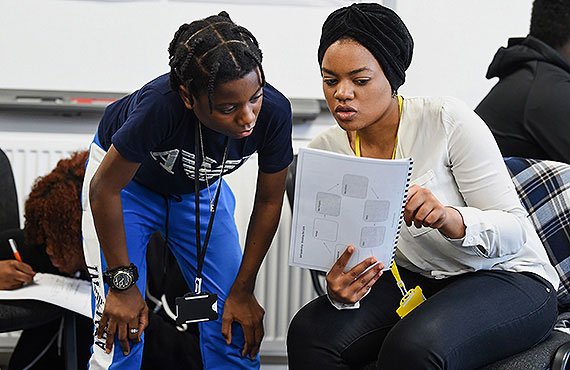
Home > Information > Child Maintenance
Child maintenance is the money a parent pays towards their child’s upbringing. All parents have a responsibility to support their child financially. Child maintenance usually includes payment of regular amounts of money to the parent who cares for the child most of the time. Child maintenance can also include paying bills or buying items such as clothes and toys, as long as both parents agree.
There are different ways to arrange child maintenance and it’s up to you to choose the one that best suits your circumstances. The amount you receive depends on how much your child’s other parent earns, how often the child stays over with them, whether they have other children, or children living with them.

There are different ways to make arrangements with your child’s other parent to set up child maintenance. The best way for you to do this will depend on your own situation.
Child Maintenance Service (CMS): The service which has replaced the Child Support Agency (CSA).
Child Maintenance Options: Free service providing information and support to help separated parents make decisions about child maintenance arrangements. www.cmoptions.org/en/about
Receiving parent: The term used by the CMS to refer to the parent who looks after the child most of the time and is eligible to receive the child maintenance
Paying parent: The term used by the CMS to refer to the parent who does not live with the child most of the time and who is liable to pay child maintenance.
Family-based arrangement: Parents deal directly with one another to agree on how much child maintenance is paid, by what means and when.
All parents have a legal responsibility to support their child financially. A parent who doesn’t live with their child, or only lives with their child part of the time, should pay child maintenance to the parent who looks after the child a majority of the time. If you share the care of your child exactly 50/50 maintenance might not need to be paid – it’s worthwhile getting some advice on this.
Child maintenance should be paid for the following children:
A parent has a duty to pay child maintenance whether or not they see their child.
It is also important to remember that a court will not decide that a child cannot see a parent because they are not paying child maintenance.
There are three options:
You can make an arrangement for any amount of child maintenance, as long as you both agree.
Knowing how much to agree on can be difficult.
The Child Maintenance Options leaflet ‘Talking about Money’ can help you look at your budget and what may be needed for children at different ages. The leaflet is available on their website www.cmoptions.org and an online maintenance calculator can be found at www.gov.uk/calculate-your-child-maintenance.
Child Maintenance Options calculates child maintenance using a standard formula. Some parents use this calculation as a basis for reaching their own arrangement.
The standard formula takes into account the paying parent’s income and any other children that they are responsible for, including those of a new partner if they live in the same household. If the paying parent has a new partner, their income will not affect your child maintenance calculation.
If your child lives with their other parent for part of the time, this will reduce the amount of child maintenance you receive.
You can still apply to the CMS. You need to give as much information as possible about the other parent so that the CMS can trace them. If you know their date of birth, national insurance number, workplace, if they are self-employed, if they are claiming benefits, last known address or town they are currently living in, this would all be helpful.
This information can help the CMS to trace the other parent, although it could take some time, and isn’t always possible.
This could happen when you separate and you have more than one child. Some of the children may live with you and some may live with the other parent. In this situation, both parents might need to pay child maintenance to the other.
If you have a family based arrangement for child maintenance you can agree a different way to organise payments. You may decide to offset your payments.
If your child’s other parent lives abroad, you can’t use the CMS to arrange child maintenance unless your child’s other parent is:
If you can’t use the CMS and you can’t reach a family-based arrangement, you could apply for a court order that can be enforced in the country where the other parent lives.
The process of obtaining a court order for a paying parent who lives abroad is called a Reciprocal Enforcement of Maintenance Order (REMO). The country the paying parent lives in must be a member of the REMO scheme.
Once the order is made you can apply to have it enforced in the country where your child’s other parent lives. Staff at your local magistrates’ court should be able to help you complete the forms and send them to the relevant place. More information is available on www.gov.uk
If you are a parent and would like to find out more about our Family Grant Scheme please fill in the following form to request a call back.
If you are a parent and would like to find out more about our Student-Parent Grant Scheme please fill in the following form to request a call back.

(01274) 223292
The Work and Kids Project is a not-for-profit social enterprise that is dedicated to helping parents and young families across the UK achieve financial and emotional independence.